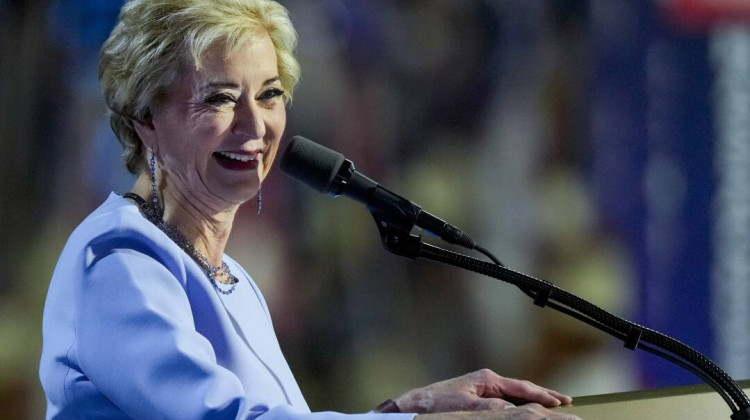Indiana lawmakers may require schools to provide more information about a controversial practice: secluding and restraining children.
Under state law, physical restraints and seclusion may only be used as a last resort to calm students and never to discipline. The state requires schools to report all uses of seclusion and restraint by school staff. The practices are generally used for students with severe disabilities who have violent outbursts.
A House Education panel voted unanimously Tuesday to add school resource officers to reporting requirements. These officers work in schools but may not be technically employed by the district.
Supporters of the bill say it’s a necessary step to get a true snapshot of the way restraint and seclusion are used.
“Right now, the data is all over the map,” says Rep. Randy Head (R-Logansport). “Hopefully, we can be more consistent and get a more accurate picture.”
Head praises measures that schools and districts have taken in recent years to educate staff on proper seclusion and restraint practices. A 2013 law mandated schools collect data on each use and created a commission to look at their reports.
Head says it’s helped schools.
“We wanted them to do it correctly,” Head says. “So that if you have to put a student in a hold, number one, the situation absolutely calls for that to happen and, number two, the technique or method that you use to gain control of that student is safe for that student.”
Despite the gains, Head says there’s still work to do. He cited a case at an Indianapolis school where allegations revolve around a teacher who attempted to seclude a disruptive student in a closet. The student attempted to fight her way out, he says, and lost part of a finger when staff abruptly closed a door.
Since 2015, the state has collected seclusion and restraint data, although it may be incomplete.
“People are not understanding how to report, what to report,” says Dana Renay, executive director at Autism Society of Indiana and a member of the state’s restraint and seclusion commission.
The commission determined many schools misunderstood how to report seclusion and restraint. They expressed concern about the accuracy of the available data. According to state officials, some schools over-reported, by reporting time-outs and in-school suspensions as seclusion, while others under-reported.
Since school resource officers are not district employees, they’re not required to report their use of seclusion or restraint.
“There is an issue where SROs are being brought into the situations where a student might have a a very significant behavior,” Renay says. “As soon as an SRO is brought in, the school is taken out and law enforcement takes over.”
The rules laid out in state law about seclusion and restraint procedures and documentation no longer apply. Lawmakers took up the issue after reports that parents learned restraint was used after students came home with bruises.
The bill passed the House education committee unanimously. It now heads to the full House.
Renay hopes new data on the number of times officers use restraint will motivate schools to look for other options.
“They’re getting called in a little too much,” Renay says.
 DONATE
DONATE









 Support WFYI. We can't do it without you.
Support WFYI. We can't do it without you.